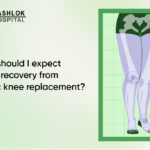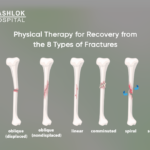5 Ways to Keep Your Gums Healthy

In the matter of oral health, gums are as important as the teeth. Gums are essentially the protective structures that keep the teeth safe and in place. They are composed of soft tissues that are attached to the bony portion of the tooth and protect the mouth against bacterial invasion. Healthy gums are important to maintain oral health and prevent infections.
Table of contents :
Feel free to skip ahead if one topic catches your eye:
- What Is Gum Disease?
- Signs and Symptoms of Gum Disease
- Why Do Gums Matter?
- Why Is Gum Health So Important?
- 5 ways to prevent gum diseases
- Which vitamin is considered good for gums?
- When to see a doctor?
- Conclusion
- FAQS
What Is Gum Disease?
Periodontal disease, also known as gum disease, is an oral health complication affecting the tissues surrounding and supporting the teeth. It starts with the formation of a biofilm of bacteria, which is referred to as plaque on the teeth. When it is not well rinsed through brushing and flossing that is done properly and daily, it piles up and transforms into tartar, leading to swelling of the gums. Gingivitis is the beginning of periodontal disease; it is when the healthy gums get inflamed and become red, and it can even bleed when one is brushing or flossing.
Gingivitis is a common disease, and the progression of this condition to Periodontitis, if not controlled, may result in tooth loss and problems with the bone of the jaw. It is thus recommended that people attend to this periodontitis because it is one of the major causes of toothless people, mainly adults. Some of the things that one could do so that he or she can learn how to strengthen gums in the future include visiting a reputed dental center like Aashlok Hospital for a check-up and observing hygiene and hygiene practices in this area.
Signs and Symptoms of Gum Disease
The identification of early signs, and symptoms is highly crucial when it comes to the treatment of gum diseases.
- Presence of red, swollen, and/ or tender gum that will bruise or bleed on the bristle of the brush or while flossing.
- Halitosis can be evidenced when one experiences bad breath all the time because of the increasing number of bacteria in the mouth.
- Retraction of the healthy gums from the teeth, thus making the teeth look longer than usual.
- Being unable to eat properly as well as loose or shifting teeth along with discomfort felt in the area of the teeth used in chewing.
- In very extreme situations, there may be an accumulation of pimples between the gums and the teeth as a sign of a particular infection. Also, other discomforts are observed to be felt by people, including discomfort when biting.
Such symptoms when observed call for an immediate visit to the dentist since early treatment can prevent the situation from becoming worse. It is recommended that people go for dental cleanings and checkups often so that healthy gums diseases are identified in their early stages and stopped from progressing.
Why Do Gums Matter?
Teeth are anchored on healthy gums, and thus, gums can be said to be essential in ensuring the overall health of teeth. The gums are equally important since they hold the teeth in position and also guard the underlying tooth material as well as the alveolar bone. In the case of poor gum health, movement of teeth is seen, resulting in the dislocation of teeth in the mouth and, in the long run, toothlessness. Thirdly, the gums also act as a shield that prevents pathogenic bacteria from penetrating the bloodstream and thus have an important role in the stream.
Some research has been conducted on the relationship that exists between periodontal disease and other diseases, including heart diseases, diabetes, and respiratory diseases. This connection underlines the need to reconsider gum health, for if one has sick gum, a person is likely to have other illnesses beyond his or her mouth. Further, healthy gums result in a healthy smile; it improves the beauty of a person with the added advantage of boosting confidence.
Another fact about healthy gums is that prevention is key; thus, regular brushing, flossing, and dental checkups will go a long way in helping one maintain healthy gums. Caring for teeth and learning how to strengthen gums reduces the development of other diseases and is a way of improving your general health.
Why Is Gum Health So Important?
Just like the gut, the mouth also houses a whole lot of bacteria that are both beneficial and harmful. This environment inside the mouth needs to stay in balance for good oral health. Maintaining healthy gums is necessary to maintain this oral microbiome and contributes to overall health in the process.
Without proper care, the mucus in combination with other substances forms plaque. This can build up on the gums and possibly advance to gum disease. The excessive bacteria releases toxins that eventually cause the destruction of the gum tissue.
Gum health goes much beyond the mouth and its influence on general health is profound. Bad oral / gum health may contribute to any of these conditions:
- Heart disease- Studies show that an Infection in your gums increases the risk of blockages in the arteries and exacerbates the existing cardiac diagnosis.
- Stroke- The blocked arteries increase the risk of stroke.
- Respiratory infection- infection-causing organisms that invade the oral cavity extend to the respiratory system and cause infections such as pneumonia.
- Increases the chances of preterm birth- A prenatal woman who does not have healthy gums during pregnancy has a higher chance of preterm delivery and a lower birth weight baby.
- Diabetes- Maintaining a healthy blood sugar level is difficult in diabetics with gum disease.
Periodontal or gum disease is most often caused by
- Poor oral hygiene – Inadequate / improper brushing and flossing
- Smoking
- Hormonal influences such as pregnancy, menopause, menstruation may negatively impact healthy gums
- Diabetes
- A positive family history of dental conditions
- Certain anti-epileptic and cardiac medications -Various types of medications can contribute to a dry mouth. This dry environment is a very favorable condition for the plaque to get attached to the tooth.
Certain other issues can enlarge the gums, predisposing them to attract plaque.
Discuss these concerns with your doctor to avoid these triggers of gum disease.
Some of the foods that may cause periodontal disease are
- Sugary foods in excess including sweets, desserts, flour bread, etc prevent maintenance of healthy gums
- Deficiency of Vitamin C- known as scurvy that may cause bleeding gums, further infections, and eventual loss Coffee, tea
- Alcohol intake dries out your saliva. The saliva helps to protect against recurring gum infections. When the mouth is dry, the possibility of catching an infectious condition is higher.
- Carbonated beverages such as soda also dry out the mouth and release acids that are damaging to the gums and responsible for accelerating gum damage
- Fruits that are acidic and their juices
- Cold foods such as ice cream contain excess sugar that sticks to gums and releases acids causing gum damage. The icy temperature further irritates the sensitive gums and cause exposed dental roots to wear off
- Biting on acidic fruits and vegetables such as tomatoes, oranges, lemons, etc exposes the gum tissue to direct acid contact.
You must keep these things in mind if you are concerned about how to fix unhealthy gums

5 ways to prevent gum diseases
Once gum disease has progressed to a severe stage, it is not possible to revert it to a healthy condition. So it is imperative to detect it early and follow a routine before it worsens.
- One of the most common healthy gums tips you will hear is to brush your teeth twice daily
- Flossing prevents plaque build-up and decreases the chances of periodontal disease
- Quit smoking – Smoking causes tartar that creates more space in the gums to trap the bacteria. This becomes challenging for the body to fight the bacteria. If the condition worsens, more bone is lost as the disease progresses.
- Stay on schedule with professional dental cleaning- This helps to detect early signs of gum disease and receive treatment on time
- Fluoride toothpaste- Using toothpaste with fluoride is your answer to “ how to keep healthy gums”. The fluoride helps to clear the bacterial build-up, fights cavities, and replenish the acid damage caused to the tooth
- Natural remedies for healthy gums include a healthy diet, oil pulling, intake of foods such as cranberries, gargling with salt water to rinse off accumulated food debris, etc, vitamin supplements are some healthy gums tips that you can use
Which vitamin is considered good for the gums?
If you are looking for ways on how to strengthen gums naturally, these will help.
- Vitamin C is very important to maintain gum health, maintain general immunity, and prevent infections. So include Vitamin C-rich foods in moderation.
- It helps to retain the collagen levels that preserve the structural integrity of the gums
- Vitamin D is known to activate the body’s self-defense mechanisms and protect against gum infection and inflammation
- Vitamin B12 plays a vital role in wound healing and maintaining normal blood cell development. This vitamin helps to prevent aggravation of gum disease and prevents periodontitis to a great extent
Keeping these tips for healthy teeth and gums in mind will help to prevent gum disease to a great extent.
When to see a doctor?
If you notice any of the following, then it’s time to visit a dentist for a professional opinion
- If you experience bleeding of the gums when you brush or floss
- Redness or swollen gums
- A receding gum line that makes teeth appear longer
- Increased sensitivity to heat and cold along with pain
- Bad breath that does not improve
- Pain while chewing
- An unpleasant taste in the mouth that doesn’t reduce with time
Conclusion
Periodontal disease is not a harmless disease and should be treated as early as possible to prevent further complications affecting the teeth and the entire body. However, to get healthy gums and teeth in the long run, ensure that you brush your teeth regularly and do not miss your dental appointments. If you are facing any gum problems, book a consultation at Aashlok Hospital now.
FAQs
How do I know if my gums are healthy?
Normal healthy gums tissue is pink in color, non-tender, smooth, and contours the teeth tightly. They do not bleed when brushing or flossing, and they won’t be swollen or tender.How do I make my gums healthy again?
To reverse the gum conditions, one should brush his or her teeth at least twice a day, floss daily, and pay a visit to the dentist for effective cleaning. Professional treatment may be necessary in case of a severe condition.
How to fix unhealthy gums?
People suffering from innutritious gums and wanting healthy gums must opt for proper care of the mouth and visit the dentist for cleaning. In the case of serious conditions, the dentist might have to perform scaling and root planing on the affected teeth. Gingivitis may need a more complex treatment or some kind of operation to fix the unhealthy gums.
What foods heal gums?
Citrus fruits, green vegetables, and fish, especially fatty fish, enhance gum health due to the vitamins C and D contained in them. Crunchy fruits and vegetables also help scrape debris off the teeth. Last but not least, proper hydration ensures that your teeth are clean and you have healthy gums.









